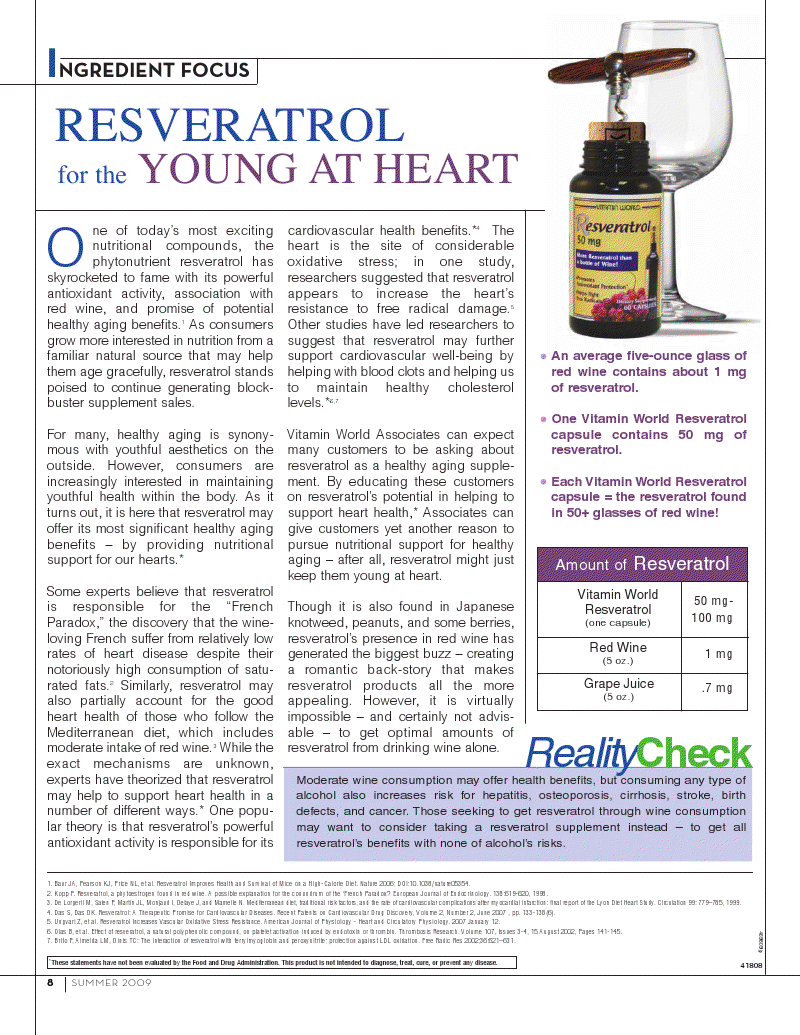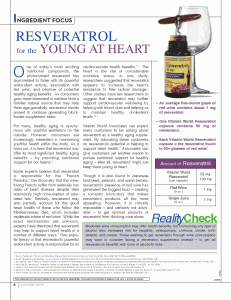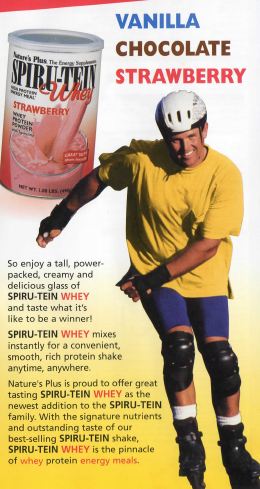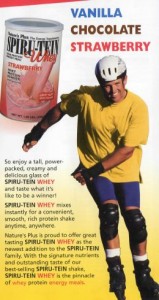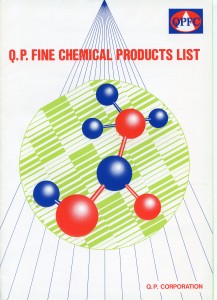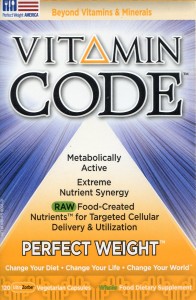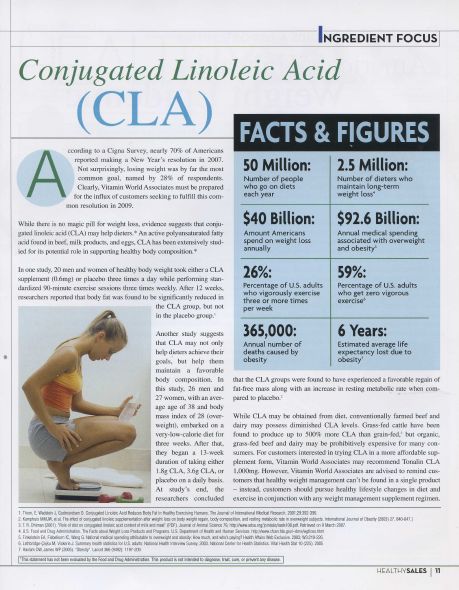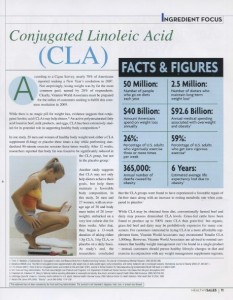How do you make a nutritional supplement sexy? It sounds strange, but if you can sell an image, you can sell anything. Especially Resveratrol.
Though commonly sourced from knotweed, Resveratrol’s sexier source is red wine grapes — an origin that sells a mindset of escape. Consumers associate the Resveratrol with romantic images of rolling vineyards in warm, lively, summer months. Not to mention that special feeling of lightheartedness that comes after a glass of favorite Pinot Noir. Resveratrol tips its cap to the good things in life and promises, through these positive associations, to be one of them.
But all the romance is useless without substantiation. My Resveratrol piece to the right balances romance with strong supportive evidence. By presenting relevant figures and credible references, this piece successfully integrates two keys to successful supplement marketing: desire and credibility.
